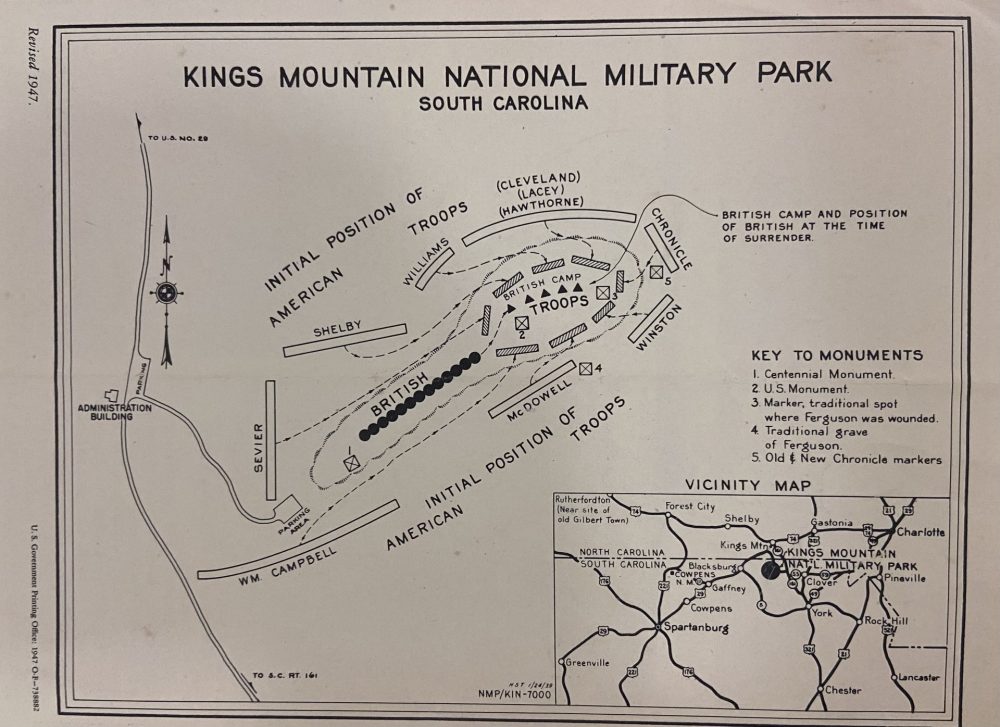
1947 map of Kings Mountain National Military Park showing where Major Patrick Ferguson was wounded and buried in the Battle of Kings Mountain. From the collections of the South Carolina Historical Society.
On October 7, 1780, Patriot militias consisting of residents of the Carolina Backcountry and the Appalachian Mountain range, called the Overmountain men, attacked fellow Americans who were Loyalists under the command of Major Patrick Ferguson on a hilltop in western South Carolina. Ferguson was the only Briton on the field. This small but important Patriot victory changed the momentum of the conflict and eventually resulted in the defeat of General Charles Cornwallis, commander of British and Loyalist troops in the South.
Earlier that year, the siege of Charleston and the British victory at the Battle of Camden afforded Cornwallis the opportunity to recruit more individuals to fight for the Loyalists as he worked his way northward. He sent Major Ferguson to North Carolina in September. Ferguson underestimated the ability of the Overmountain men and warned local Patriots to cease all opposition to the British. He announced that, in the face of resistance, he would “march over the mountains, hang their leaders, and lay their country to waste…” Led by John Sevier, William Campbell, Joseph McDowell, Isaac Shelby and others, the Overmountain men decided to attack. Ferguson heard of their plan and moved to a small 60-foot hill just a couple of miles from the border between North and South Carolina.
The Patriots learned of Ferguson’s troops’ position and planned an assault from all sides of the hill. According to legend, Campbell told his men to “shout like Hell and fight like devils.” As the Americans approached, Ferguson remained on his horse to lead the counterattack. Originally, the Loyalists pushed the Patriots back, but another wave of Overmountain men, hidden by the woods, attacked from the other sides of the hill. They continued to shout and yell as they gained territory. Ferguson attempted to lead his men past the American troops, but he was hit several times and slumped in the saddle—his feet still in the stirrups. Realizing their commander was dead, the Loyalists surrendered.
The Loyalists suffered just over one thousand casualties, while the Patriots lost approximately ninety men. More importantly, the Overmountain men proved their ability to organize and carry out an attack. The victory encouraged others to join their forces. With the loss of Ferguson and his left flank and realizing that his attempt to secure Loyalist support was doomed, Cornwallis retreated southward. Thomas Jefferson referred to the Battle of Kings Mountain as “The turn of the tide of success.”